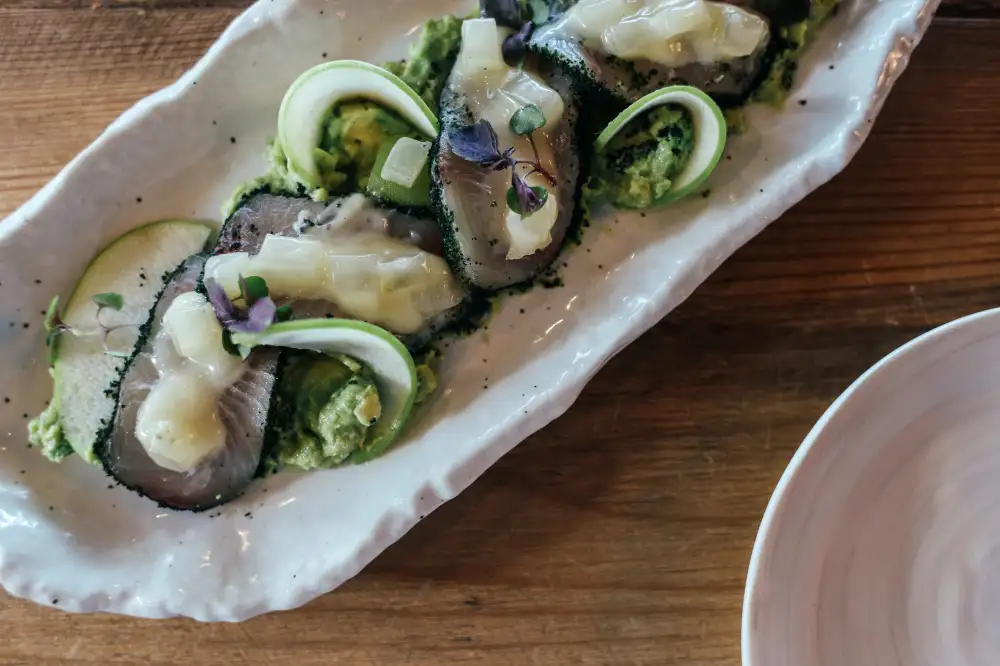Deliciously Savory: Unleash the Flavors of Chinese Cuisine with Oyster Sauce Recipes

Oyster sauce is a rich and flavorful condiment that has been an integral part of Chinese cuisine for centuries. It is a thick, dark brown sauce made from oysters, soy sauce, sugar, and other ingredients. With its umami taste and savory aroma, oyster sauce adds depth and complexity to a wide range of dishes.
This versatile sauce originated in southern China and has since gained popularity worldwide. Its unique flavor profile makes it a staple in Cantonese cooking, where it is used to enhance stir-fries, marinades, and dipping sauces. Oyster sauce is also commonly found in Thai, Vietnamese, and Filipino cuisines.
The process of making oyster sauce involves simmering oysters in water until they release their natural juices. This liquid is then combined with soy sauce and other seasonings before being reduced into a thick consistency. The result is a savory sauce with hints of sweetness and brininess.
In addition to its delicious taste, oyster sauce offers several health benefits. It is low in fat and cholesterol while providing essential nutrients like iron, calcium, and zinc. Oysters themselves are known for their high levels of omega-3 fatty acids, which promote heart health.
When cooking with oyster sauce, it's important to remember that a little goes a long way due to its intense flavor. It can be used as a marinade for meats or added directly to stir-fries for an extra burst of umami goodness. Oyster sauce pairs well with vegetables such as bok choy or broccoli and can even be used as a dipping sauce for dumplings or spring rolls.
Whether you're a seasoned chef or just starting out in the kitchen, incorporating oyster sauce into your repertoire will undoubtedly elevate your dishes to new heights. Its unique flavor profile and versatility make it an essential ingredient in Chinese cuisine that should not be overlooked. So go ahead and unleash the flavors of Chinese cuisine with the deliciously savory oyster sauce!
History and Origins of Oyster Sauce
Oyster sauce, a key ingredient in Chinese cuisine, has a rich history that dates back centuries. It is believed to have originated in the southern coastal regions of China, where oysters were abundant. The sauce was first created by reducing oyster broth and adding soy sauce to enhance its flavor.
The exact origins of oyster sauce are debated, but it is commonly attributed to Lee Kum Kee, a renowned Chinese chef who lived during the 19th century. Lee Kum Kee began producing oyster sauce commercially in the city of Guangzhou (Canton), and his recipe became widely popular.
Initially, oyster sauce was made by slowly simmering oysters in water until they released their natural juices. This liquid was then combined with soy sauce and other seasonings to create a savory condiment. Over time, the process evolved, and modern methods now involve using oyster extracts or essences instead of whole oysters.
Oyster sauce gained popularity not only in China but also among Chinese immigrants who brought it to other parts of the world. It soon became an essential ingredient in various Asian cuisines, including Thai, Vietnamese, and Filipino dishes.
Today, oyster sauce is readily available in supermarkets worldwide and is used as a flavor enhancer in stir-fries, marinades, and dipping sauces. Its umami-rich taste adds depth and complexity to a wide range of dishes.
The history and origins of oyster sauce highlight its significance as a traditional Chinese condiment that has transcended cultural boundaries to become a beloved ingredient in global cuisine.
Ingredients Used in Oyster Sauce
Oyster sauce is a key ingredient in Chinese cuisine, renowned for its rich and savory flavor. It is made from a few simple ingredients that come together to create a complex taste profile. The main ingredient, as the name suggests, is oysters. These shellfish are simmered in water until their essence is extracted. This liquid is then combined with soy sauce, sugar, salt, and sometimes additional flavorings such as garlic or ginger. The result is a thick and glossy sauce that adds depth and umami to dishes. Oyster sauce typically does not contain any actual pieces of oyster but instead captures their essence through the cooking process. It is important to note that while oyster sauce is vegetarian-friendly, some brands may use oyster extract or other seafood derivatives in their production process. Therefore, it's always advisable to check the label if you have dietary restrictions or preferences.
The Process of Making Oyster Sauce
The process of making oyster sauce begins with fresh oysters. The oysters are carefully selected and shucked, removing the meat from the shells. The oyster meat is then simmered in water until it becomes tender and releases its natural juices.
Next, the liquid is strained to remove any impurities and solids. This flavorful liquid is then combined with other ingredients such as soy sauce, sugar, salt, and sometimes cornstarch for thickening. The mixture is cooked over low heat, allowing the flavors to meld together and thicken to a rich consistency.
Throughout the cooking process, the sauce is constantly stirred to prevent burning or sticking to the bottom of the pan. Once it reaches the desired consistency, it is cooled and bottled for storage.
The traditional method of making oyster sauce can take several hours to complete, as it requires slow cooking and careful attention to detail. However, modern production methods have streamlined this process, allowing for mass production while still maintaining the authentic flavor.
It's important to note that not all commercially available oyster sauces are made using real oysters. Some may use artificial flavorings or additives instead. Therefore, it's recommended to read labels carefully and choose brands that prioritize using real oysters in their sauce-making process for a more authentic taste experience.
Culinary Uses of Oyster Sauce
Oyster sauce is a versatile and flavorful condiment that adds depth and richness to various dishes. Its umami taste makes it a popular ingredient in Chinese cuisine, as well as in other Asian and Western recipes. Here are some common culinary uses of oyster sauce:
1. Stir-fries: Oyster sauce is frequently used in stir-fry dishes, where its savory flavor complements vegetables, meats, and seafood. It adds a deliciously savory note to the dish while enhancing the natural flavors of the ingredients.
2. Marinades: Oyster sauce works wonders as a marinade for meats like chicken, beef, or pork. Its thick consistency helps to tenderize the meat while imparting a rich flavor profile.
3. Sauces and gravies: Oyster sauce can be used as a base for sauces and gravies, adding depth and complexity to the overall taste. It can be combined with other ingredients like soy sauce, garlic, ginger, or chili to create mouthwatering dipping sauces or glazes.
4. Noodle dishes: Oyster sauce is an essential ingredient in many noodle-based dishes such as chow mein or lo mein. Its robust flavor pairs well with noodles and gives them an irresistible savory taste.
5. Vegetarian dishes: While traditional oyster sauce contains oysters, vegetarian versions made from mushrooms are also available. These vegetarian oyster sauces are widely used in vegetarian stir-fries or vegetable-based dishes to add a similar umami flavor without using animal products.
In summary, oyster sauce is prized for its ability to enhance the flavors of various dishes across different cuisines. Its versatility makes it an indispensable ingredient in both traditional Chinese cooking and modern fusion recipes alike.
Health Benefits of Oyster Sauce
Oyster sauce not only adds a rich umami flavor to dishes, but it also offers several health benefits. Oyster sauce is a good source of essential nutrients such as vitamins, minerals, and amino acids. It contains high levels of iron, which helps in the production of red blood cells and prevents anemia.
Furthermore, oyster sauce is low in fat and cholesterol, making it a healthier alternative to other sauces. It is also free from artificial preservatives and additives. Oyster sauce contains antioxidants that help protect against cell damage caused by harmful free radicals.
Additionally, oysters are known for their high zinc content. Zinc plays a crucial role in boosting the immune system and promoting wound healing. It also aids in maintaining healthy skin and hair.
However, it's important to consume oyster sauce in moderation due to its sodium content. Excessive intake of sodium can lead to high blood pressure and other cardiovascular issues. Therefore, individuals with hypertension or heart conditions should use oyster sauce sparingly or opt for reduced-sodium varieties.
Incorporating oyster sauce into your cooking can provide both flavor enhancement and potential health benefits. Remember to balance its usage with other nutritious ingredients for a well-rounded meal.
Tips for Cooking with Oyster Sauce
1. Use it as a marinade: Oyster sauce works wonders as a marinade for meats, seafood, and vegetables. Its rich umami flavor adds depth to your dishes. Simply mix oyster sauce with some soy sauce, garlic, and ginger for a delicious marinade.
2. Balance the flavors: Oyster sauce is quite salty on its own, so it's important to balance it with other ingredients. Add a touch of sweetness from honey or sugar, acidity from vinegar or citrus juice, and some spice from chili peppers to create a well-rounded dish.
3. Enhance stir-fries: Stir-frying is one of the most popular cooking methods in Chinese cuisine, and oyster sauce is often used to enhance the flavors of stir-fried dishes. Add it towards the end of cooking to preserve its distinct flavor.
4. Experiment with different cuisines: While traditionally used in Chinese cuisine, oyster sauce can also be incorporated into other cuisines such as Thai, Vietnamese, or even Western dishes like burgers or pasta sauces. Be creative and explore new flavor combinations.
5. Use it as a condiment: Oyster sauce can be drizzled over steamed vegetables, grilled meats, or even used as a dipping sauce for dumplings or spring rolls. Its savory taste adds an extra layer of deliciousness to any dish.
6. Store properly: To maintain its freshness and flavor, store oyster sauce in the refrigerator after opening. It can last for several months if stored correctly.
By following these tips, you can make the most out of this versatile ingredient and unlock the full potential of oyster sauce in your cooking endeavors.
Popular Recipes Featuring Oyster Sauce
1. Stir-Fried Beef with Oyster Sauce: Tender strips of beef are marinated in oyster sauce, soy sauce, and garlic before being stir-fried with vegetables like bell peppers and onions. This savory dish is a classic favorite.
2. Honey Garlic Shrimp with Oyster Sauce: Succulent shrimp are cooked in a sweet and tangy sauce made from oyster sauce, honey, garlic, and ginger. The result is a delightful combination of flavors that pairs perfectly with steamed rice.
3. Chinese Broccoli with Oyster Sauce: This simple yet delicious dish features blanched Chinese broccoli drizzled with a savory oyster sauce dressing. It's a healthy and flavorful side dish that complements any meal.
4. Crispy Tofu in Oyster Sauce: Cubes of tofu are deep-fried until golden brown and then tossed in a rich oyster sauce glaze. The contrast between the crispy exterior and soft interior makes this vegetarian dish incredibly satisfying.
5. Chicken Chow Mein with Oyster Sauce: This popular Chinese noodle dish combines stir-fried chicken, vegetables, and egg noodles in a savory oyster sauce-based gravy. It's quick to make and perfect for a weeknight dinner.
These recipes showcase the versatility of oyster sauce by adding depth and umami to various dishes. Experimenting with different ingredients and techniques can help you create your own unique recipes using this delectable condiment.
In conclusion, oyster sauce is a versatile and flavorful condiment that can elevate the taste of any dish. Its rich umami flavor adds depth and complexity to stir-fries, marinades, and sauces. With its long history and origins in Chinese cuisine, oyster sauce has become a staple ingredient in many Asian dishes.
Not only does oyster sauce enhance the flavors of your dishes, but it also offers several health benefits. It is low in fat and calories while being a good source of essential nutrients like iron, calcium, and zinc. Additionally, oyster sauce contains antioxidants that promote overall well-being.
When cooking with oyster sauce, remember to use it sparingly as it can be quite salty. Start with small amounts and adjust according to your taste preferences. It is also important to choose high-quality oyster sauce made from real oysters for the best results.
To unleash the full potential of oyster sauce, try incorporating it into popular recipes like beef stir-fry with oyster sauce or vegetable lo mein. The savory flavor will transform ordinary ingredients into extraordinary culinary delights.
So why not experiment with this delectable condiment? Discover the art of food enjoyment by adding the deliciously savory oyster sauce to your favorite dishes. Whether you are a seasoned chef or an amateur cook, this versatile ingredient will surely impress your taste buds and take your cooking skills to new heights.
Published: 22. 02. 2024
Category: Recipes



